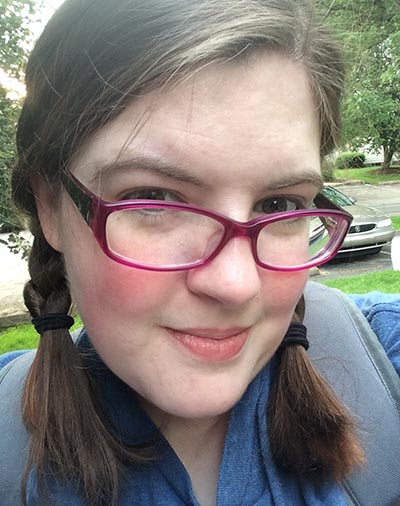Indicators of Adulthood: Measuring Up
by Lydia Wayman
Posted on
October 14, 2015
While many young adults in their later 20s are thinking about marriage and budding careers, young adults on the spectrum often have different concerns. We’re assessed by different standards meant to point toward the ever-present goal of independence.
The National Autism Indicators Report: Transition into Young Adulthood recently reported on how young adults with autism are faring in key outcomes, including social and community participation, employment, and overall independence or need for continued support. While I am one of many thousands still falling through the cracks of adequate services, I think it’s important to show just how much my peers and I have to offer when we have the right supports in place. Sometimes, successes and strengths are hard to capture and quantify.
Social and Community Engagement: “Approximately one in four young adults with autism were socially isolated. They never saw or talked with friends and were never invited to social activities within the past year.”
I don’t engage very often with my typical peers. Mostly, I’m around other people on the spectrum at the local autism center. I spend nearly all my time at home, alone, on my laptop. In the language of the Indicators report, I am essentially “disconnected” from the local community. But I’m not disconnected from my closest friends—other autistic advocates and their families who are spread across the country. I may not go to dinner parties, but form strong connections online and through text-based communication instead.
Employment: “About 60% of young adults on the autism spectrum ‘worked for pay outside the home between high school and their early 20’s’ with 21% working full-time.”
In the year after my diagnosis at age 21, I tried several part-time, minimum-wage jobs, but I was constantly so overstimulated that I spent shifts hiding in the bathroom. I hadn’t yet figured out how to manage my sensory and social limitations or rely on communication supports when I felt overwhelmed. I had so much ability and potential, but I couldn’t use it in a traditional work environment. As evidenced in the Indicators Report, many bright and capable autistic young adults have similar experiences. For me, the problem wasn’t the work, it was the environment! I can work and stay calm and focused when my brain is free to think and not struggling to cope. Writing, editing, and advocating are ways I can use my talents and do what I love.
Independence: “One in five young adults on the autism spectrum ever lived independently (away from parents without supervision) between high school and their early 20s.”
I’ve made so much progress in the last few years. I was finally able to live on my own with some supports but not until age 25. I still require extra support with appointments, errands, and some daily living skills. While it’s considered a dependence when I call my mom to ask about money, it’s seen as normal for my older sister to call her about laundry stains and opinionated toddlers. And I’m the family guru on child development and proper grammar—we all have different needs and different niches.
When considering outcomes and the crucial areas to study, the target population needs to have a say in what matters. For good quality of life, it doesn’t matter how I measure up to someone else’s ideals, and judging by the standard “young adult on the spectrum” outcomes, it might look like I’m not very successful. I recognize that I have many areas to improve, and the first step is to identify them, but it paints half the picture of my life if the outcomes don’t include how I’m meeting my personal goals or the invaluable growth that happens on the long road to any big achievement.
If we only look to one other key outcome, it should be this: When you try something new, do you believe you can succeed? It’s the secret, the key, the magic to a bright future for all of us, because when we believe we can, nothing stops us. Just watch.
 Lydia Wayman, M.A., is an autistic advocate with a B.S. in elementary education and M.A. in English and nonfiction writing. She blogs at Autism Speaks and contributes to other websites, magazines, and anthologies. Lydia manages the digital media for a local autism nonprofit and enjoys presenting at local and national events and serving as a Young Leader with the Autistic Global Initiative.
Lydia Wayman, M.A., is an autistic advocate with a B.S. in elementary education and M.A. in English and nonfiction writing. She blogs at Autism Speaks and contributes to other websites, magazines, and anthologies. Lydia manages the digital media for a local autism nonprofit and enjoys presenting at local and national events and serving as a Young Leader with the Autistic Global Initiative.
The views expressed in this blog are the author's own and not necessarily those of the Life Course Outcomes Research Program.